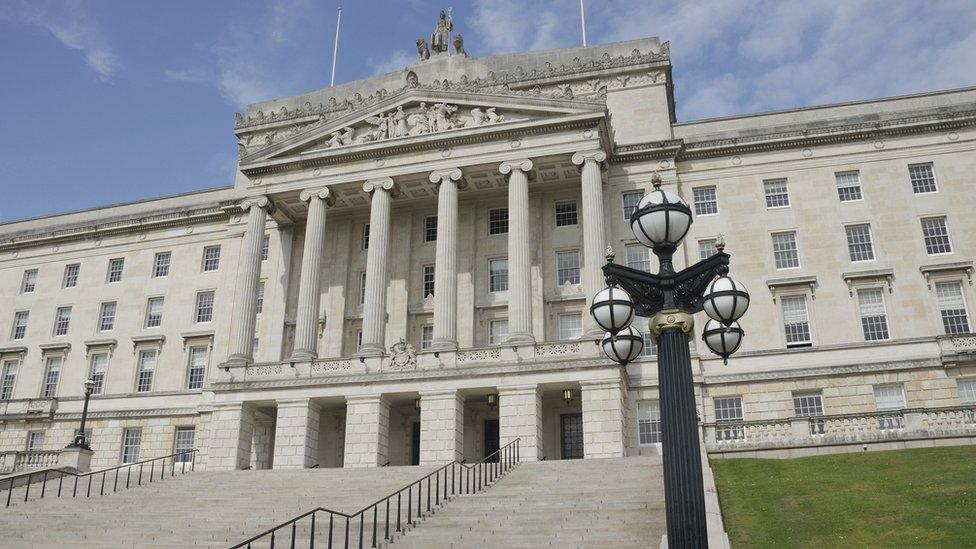More public sector pay strikes if NI falls behind UK, unions warn
- Published
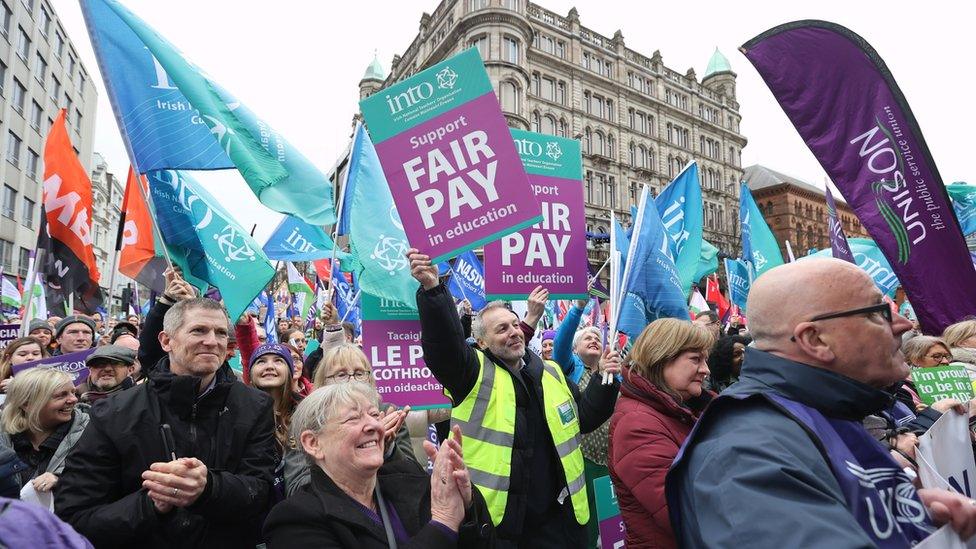
Most public sector pay decisions are devolved to Stormont
A trade union body is warning of further industrial action in Northern Ireland if public sector pay falls behind other parts of the UK.
Millions of public sector workers in England and Wales are to get pay rises of 5% to 7%, the government has said.
Most public sector pay decisions in Northern Ireland are devolved to the power-sharing government at Stormont.
But with no ministers in place and severe pressure on budgets it is not clear what pay awards will be made.
The trade union umbrella body NIC-ICTU represents about 800,000 workers affiliated through 64 trade unions in Northern Ireland and the Republic of Ireland.
It said there would be a carnival of industrial unrest if pay for Northern Ireland public servants was allowed to fall further behind rates on offer in England and Wales.
Police and prison officers in England and Wales will receive a 7% pay rise, while teachers and junior doctors will get a 6.5% and 6% rise respectively.
Gerry Murphy of NIC-ICTU said that a failure to make similar offers to public sector workers in Northern Ireland would "cause further and widespread industrial action to take place".
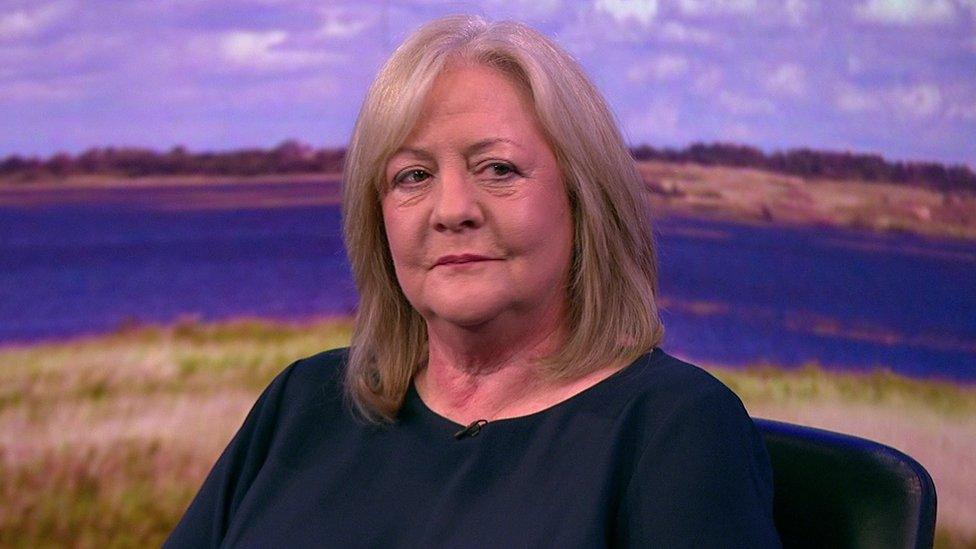
Nipsa's Carmel Gates is calling for coordinated industrial action in the autumn
Carmel Gates, the general secretary of the Northern Ireland Public Service Alliance (Nipsa) union, said the lack of a pay deal could lead to a "coordinated industrial action".
She also said that even if the pay rises of 5% to 7% being given to workers in England and Wales were on offer in Northern Ireland that still "doesn't go far enough".
"It's still a pay cut," she said. "The Bank of England's estimation of inflation at the end of last month was 8.7% so anything below 8.7% is a huge cut."
Ms Gates said that pay was not keeping pace with rising prices for food and housing.


A lot of people will be reading about this pay award and will be thinking: "Does it apply to Northern Ireland?"
To put it simply, no. It is for some public sector workers in England and Wales.
In Northern Ireland we have a very different picture.
Firstly there are no ministers at Stormont to decide about increasing public sector pay.
As well as that, Stormont departments are under big pressure to make deep cuts to their spending.
So even if a similar pay offer was made in Northern Ireland it could mean further cuts if departments were not granted extra money from Westminster to fund it.
Normally when the UK government makes funding announcements for England and Wales, a proportional funding boost is sent to Northern Ireland through the Barnett formula.
But under the terms Westminster has set for this year's budget for Northern Ireland, any funding increases are to be syphoned off to pay down an overspend that Stormont accrued last year.
All of that will be a hard pill for public sector workers to swallow.

Dr Tom Black of the doctors' union the British Medical Association said the situation was "completely unacceptable" for healthcare staff in Northern Ireland.
"It certainly does not make them feel valued and it will not stem the tide of practice closures or of doctors looking to retire or work elsewhere where there is better pay and more value is placed on the vital role doctors have in society," he said.
Liam Kelly, the chair of the Police Federation of Northern Ireland, said it was good news that police officers in England and Wales would receive an increase in pay.
But he called for clarity from Stormont's Department of Justice about whether it would accept a similar pay recommendation if it was mirrored in Northern Ireland.
"At this stage our officers are entitled to know if they are getting 7% or if, for the first time, there will be a break with pay parity," he said.
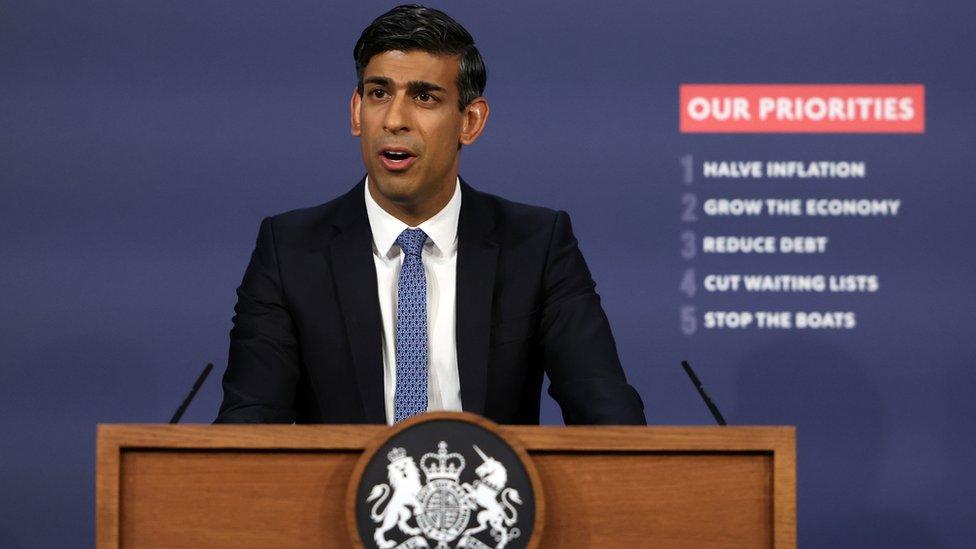
The prime minister announced the pay awards at a press conference on Thursday
Prime Minister Rishi Sunak said he had accepted recommendations made by the pay review bodies "in full".
He said the rises would not be funded by borrowing more or increasing taxes.
He added that the offer was "final" and further industrial action would not change that decision, saying: "There will be no more talks on pay.
"We will not negotiate again on this year's settlements and no amount of strikes will change our decision."
- Published13 July 2023
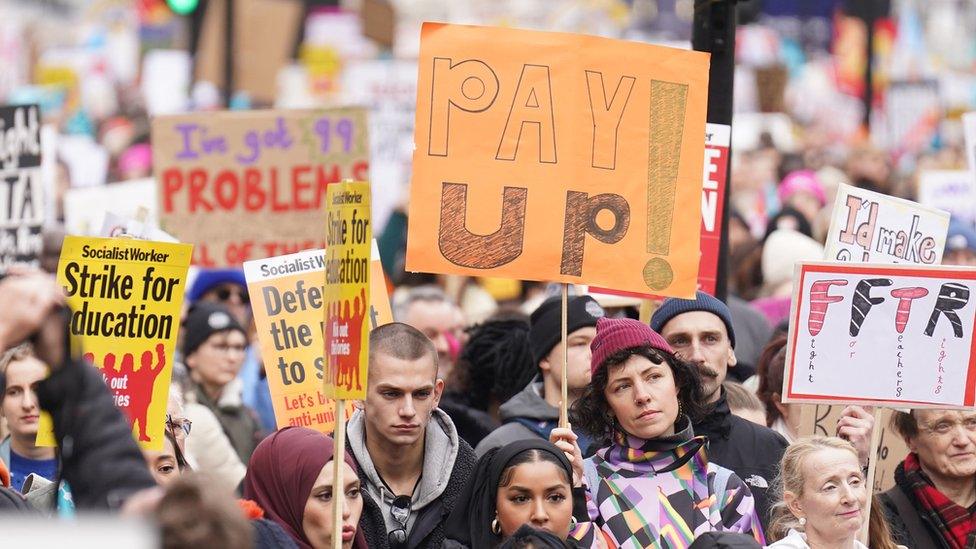
- Published23 May 2023
